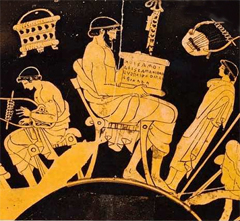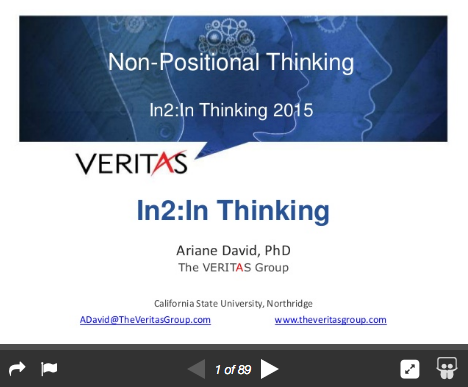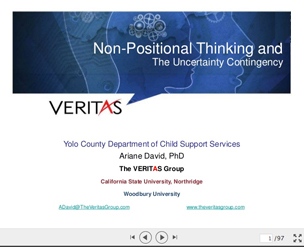The Tyranny of Knowledge: The Second Uncertainty Principle

“Prior to the Greeks books had played no great part in the development, dissemination, and transmission of culture from generation to generation. Now they were to become a cardinal force in advancing and retarding the mind’s expansion.”
James Harvey Robinson
The ancient Greeks weren’t fettered by the existence of a hallowed body of knowledge or by a stifling intellectual tradition.
They had no intellectual past and no sense of history beyond the memories of those who lived to tell. Thought was free and malleable.
It varied teacher to teacher, with no “right” form, and each teacher taught how and what he wanted. While there was a rich tradition of cultural myths, they weren’t written down anywhere.
Myths and knowledge of all kinds were simply passed down by word of mouth, growing and changing with every telling. For the most part, in the absence of scientific jargon, the words they used to describe thought were the words of simple everyday life.
Aristotle was the first to codify knowledge.
He took what he knew (and that was sizable!) about ethics, logic, politics, law, god, science, and psychology and sociology, and wrote them up into a number of volumes so comprehensive that they seemed to encompass all of the world’s knowledge. These were, in a sense, the world’s first textbooks!
The chronicle of Aristotle’s works after his death is ambiguous, but it’s certain that much was lost in the centuries subsequent to their writing. They found their way to the early Arabic scholars who revered them. These scholars copied and recopied them, and finally introduced them to medieval Europe in the twelfth century.
The accumulated knowledge of the western world until this time was pitifully sparse, and the medieval world was ready for more. With the reworking of Aristotle’s works by Thomas Aquinas, who cleaned them up to make them compatible with Christian theology, came the great medieval intellectual revival.
Simply “The Philosopher”
So without peer was Aristotle that he became known simply as “The Philosopher”, and so popular were his baptized works that in many instances they became the sole resource of universities.
For hundreds of years Aristotle dominated the medieval scholarly scene. Non-Aristotelian resources were either banned completely, or those who taught them were heavily fined and often found themselves without students to teach. And why not, Aristotle’s comprehensive works covered every subject imaginable.
Nothing more was necessary, including scientific research of any kind; all was known, and it was easier to use old knowledge than to add to it. The medieval mind was much better suited to faith to than questioning.
And therein lay the rub: it was so much safer and easier to discuss and re-discuss Aristotle’s ideas than to venture out into the uncertainty of questioning and research.
The Obstinacy of Inertia
Ironically, the very compilation of knowledge that so advanced medieval learning, eventually became one of the biggest obstacles to the acquisition of new knowledge. After all, no learning is necessary, no advancement of knowledge possible, when everything is known already.
Historian James Harvey Robinson observed that old knowledge takes no effort at all to maintain: it simply goes on and on under the sheer obstinacy of inertia; it relies on faith alone.
On the other hand, acquisition of new knowledge requires questioning, openness, thought, energy, and above all, courage. Our survival oriented human brains are much better suited to take things on faith than to suffer the discomfort of not knowing.
Francis Bacon once remarked that people are much more prone to believing the popular, superficial, and safe than they are to risking the profound and unknown.
Thinking, he noted, is like a river: what is carried downstream are the things that are lightweight and of little substance, while the weighty things simply go under.
Da Vinci and Galileo
The scientific inquiry that did take place in medieval Europe didn’t happen in the universities where the old Aristotelian knowledge was considered complete and unassailable. Universities had no place in emerging scientific thought that was to materialize in the late middle ages.
Rather scientific inquiry took place among scattered daring new thinkers such as Da Vinci, Galileo, Descartes and Newton, who tinkered with contraptions made up of lenses, wheels, pulleys, and prisms and who based their inquiry on questioning rather than on knowledge.
These were renegades who dared to venture from the anointed path and finally broke the spell of the medieval tyranny of knowledge.
“I think, therefore I am” was not a declaration of purpose, but a statement of doubt.
Descartes realized that the tyranny of knowledge existed not only institutionally and culturally but formed the basis of individual human thinking. Humans, he observed, could not tell the difference between what actually existed in the world and what they conjured into existence in their minds.
While Descartes had no knowledge of neuroscience he “grokked” the basic unreliability of human knowledge.
Thus his famous entreaty to doubt: “If you would be a real seeker after truth, it is necessary that at least once in your life you doubt … all things.”
Not some things, but all things.



Add to your discussion St. Francis of Assisi “”hominem unius libri timeo” (I fear the man of one book) to be taken either as an expression of disappointment at the narrowness of a man’s knowledge or the recognition that a man who knows only one book can be a formidable opponent..
The tyranny of knowledge, to be sure, but also the unfortunate trait of mankind that abhors uncertainty.
Agreed! Fear of or discomfort with uncertainty is the bane of critical thinking. I think the man of one book harkens to “a little knowledge is a dangerous thing!” Hope you’re well!